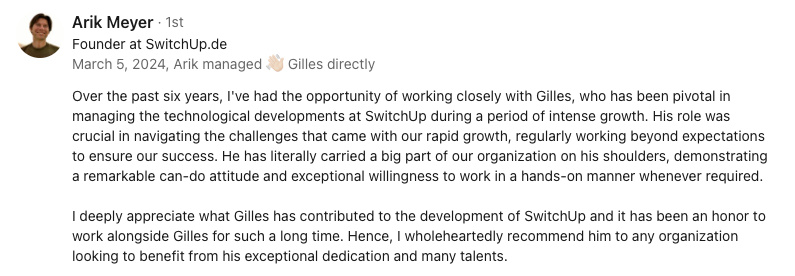Abstract:
The article discusses how Artificial Intelligence (AI) is revolutionizing healthcare logistics by enhancing supply chain efficiency, optimizing inventory management, streamlining administrative tasks, and improving resource allocation. AI's predictive analytics help prevent shortages and ensure timely deliveries, as demonstrated in European hospitals like Sant Joan de Déu in Spain. It also automates inventory tracking, reducing costs related to overstocking and understocking. By predicting patient admissions and managing resources, AI improves hospital efficiency and patient care, as seen in Berlin. Despite challenges like system integration and staff training, efforts such as the EU's Digital Health and Care initiative aim to overcome these hurdles. AI-driven administrative automation reduces costs and frees healthcare professionals to focus on patient care, with examples from startups like DeepMind Health and Babylon Health. AI also contributes to significant cost savings, as reported by McKinsey & Company, and positions European startups for global competition. Compliance with EU regulations like GDPR is crucial for data privacy, while future AI innovations promise advancements in diagnostics and personalized medicine. Investment in AI is encouraged, with programs like the EU’s Horizon Europe supporting research and development, heralding a more efficient and patient-centric healthcare future.
Navigating healthcare logistics is challenging, with constant pressure to cut costs while maintaining high service quality. Fortunately, Artificial Intelligence (AI) offers innovative solutions. AI is not just a technical buzzword—it's transforming healthcare logistics by streamlining supply chains, managing inventories, and optimizing resource use. As AI tackles these tasks, it promises significant savings and efficiency improvements. From European hospitals to startups, AI is making a tangible impact.
Revolutionizing Healthcare Logistics with AI
AI is disrupting various industries, including healthcare logistics. It enhances supply chain efficiency and inventory management, reducing costs in the process.
Optimizing Supply Chain Management
Predictive Analytics in Supply Chains
AI significantly enhances supply chain forecasting. It helps prevent shortages and maintains optimal inventory levels. Advanced analytics provide precise demand forecasts, ensuring healthcare facilities have necessary supplies when needed. A 2021 McKinsey & Company report highlights how this increases reliability and reduces waste. In Berlin, a tech hub, I've witnessed AI improving logistics by efficiently managing stock and ensuring timely deliveries.
Real-World Applications in European Hospitals
Success stories from European hospitals illustrate AI's logistical benefits. For example, Spain's Sant Joan de Déu Hospital's AI platform has led to:
- Fewer Stockouts: Improved inventory management and availability.
- Cost Efficiency: Reduced excess supply, lowering costs.
These examples demonstrate AI's potential, despite some challenges.
Overcoming Integration Challenges
Implementing AI in healthcare logistics presents challenges, such as interoperability and staff training. AI systems must integrate seamlessly with existing healthcare systems, a goal supported by the EU's Digital Health and Care initiative. Staff require proper training to manage these advanced systems. As supply chains evolve, AI's role in inventory management becomes increasingly important.
Enhancing Inventory Management
Automating Inventory Tracking
AI extends beyond supply chains, enhancing inventory tracking and reordering. Automation improves efficiency and accuracy. In healthcare, where precision is critical, AI maintains optimal inventory levels, reducing costs associated with overstocking and understocking. According to the Journal of Medical Internet Research (2020), AI automation is essential.
Real-Time Data Analytics
AI provides real-time analytics for quick decision-making, further refining inventory management. This surpasses traditional methods by improving resource allocation strategies, as noted by McKinsey & Company (2021). By using predictive analytics, healthcare systems can optimize staffing and resource allocation, enhancing logistics and healthcare delivery.
AI's Role in Resource Management and Allocation
AI is advancing resource management and allocation in healthcare. It predicts patient admissions and optimizes resource use, enhancing both patient experience and hospital efficiency.
Predicting Patient Admissions
AI analytics improve patient flow management and resource planning. By analyzing historical data, hospitals can align staffing and resources with demand, reducing wait times and increasing efficiency. A 2021 study in The Lancet Digital Health shows how predictive capabilities enhance operations and patient care.
In Berlin, I've observed hospitals using AI to predict admissions, improving patient flow and resource use. Witnessing predictive analytics in action reveals AI's potential in hospital logistics and patient satisfaction.
Efficient Allocation of Equipment and Rooms
AI enhances scheduling and allocation of hospital equipment and rooms. AI systems analyze usage patterns to ensure resources are well allocated. At Oxford University Hospitals NHS Foundation Trust in the UK, AI-driven systems have significantly improved operating room efficiency.
Challenges like data integration and staff training exist, but solutions include:
- Improving Interoperability: Ensuring AI systems integrate with existing ones.
- Training Staff: Equipping healthcare staff with skills to manage AI.
- Continuous Monitoring: Ongoing evaluation for smooth AI integration.
Overcoming these challenges, with support from the EU's Digital Health and Care initiative, allows AI to further enhance healthcare logistics.
Streamlining Administrative Processes with AI
AI is not only transforming clinical operations but also revolutionizing administrative tasks. By automating routine tasks like billing and records, AI reduces costs and frees up time.
Automating Routine Tasks
AI takes over routine administrative duties, saving time and money. Automating billing and scheduling allows healthcare providers to focus more on core services. Startups across Europe are leading in this field, as highlighted by McKinsey & Company (2021).
Innovators Tackling Administrative Challenges
Startups are using AI to address administrative inefficiencies:
- DeepMind Health (UK): Automates patient record management.
- Babylon Health (UK): Provides AI scheduling, reducing wait times.
- CureMetrix (USA): Innovates in billing systems.
These efforts reduce administrative burdens, allowing healthcare professionals to concentrate on patient care.
Freeing Up Healthcare Professionals
AI's management of administrative work enables healthcare professionals to focus more on patients. This shift not only decreases paperwork but also enhances quality and patient satisfaction, reducing burnout among staff.
Case Studies Highlighting Enhanced Patient Outcomes
AI-enabled automation improves patient outcomes. At Oxford University Hospitals NHS Foundation Trust, AI systems have reduced errors and increased efficiency, allowing more patient interaction and better care.
Unlocking Cost Reduction Strategies Through AI
AI is transforming healthcare's financial landscape. By optimizing operations, AI drives cost savings, allowing facilities to use resources wisely.
AI's Role in Cost Savings
AI streamlines operations, reducing overhead and unnecessary spending. This leads to significant savings, boosting financial health and competitiveness. In Berlin, I've personally witnessed AI cut supply chain redundancies, saving money for patient care.
Strategically using AI allows healthcare facilities to tap into these savings. The EU's Horizon Europe program supports this, offering guidance and funding.
Competing Globally with AI
European startups use AI to enhance efficiency and compete globally. BenevolentAI in the UK, for example, improves drug discovery and enters international markets. Navigating compliance and data privacy is crucial, with GDPR compliance and medical device regulations being key to global expansion.
In Berlin, I've seen AI's impact on startups that focus on compliance and ethics, positioning themselves for success as AI becomes integral in healthcare.
Ensuring Compliance and Protecting Data Privacy
As AI expands in healthcare, compliance and data privacy are critical. Adhering to regulations protects sensitive information.
Navigating EU Regulations
The EU's GDPR is essential for managing health data securely. AI systems must incorporate data protection by design, as noted by the Journal of Medical Internet Research (2020), to maintain patient trust. EU Medical Device Regulations also apply, ensuring AI diagnostic tools meet standards. The European Commission provides guidance on aligning AI products with regulations.
Best Practices for Data Privacy
Data privacy involves integrating protection into AI systems. WHO (2021) offers best practices for embedding privacy in AI applications. Focusing on practical privacy methods ensures AI's reliability and user trust.
Future Trends and Opportunities in AI Healthcare
Upcoming AI Innovations
AI's potential in healthcare is immense, particularly in diagnostics and personalized medicine. Emerging technologies promise improved diagnostic accuracy, leading to more tailored care. A study in The Lancet Digital Health (2019) shows AI's data analysis enhances diagnosis precision.
In Berlin, technological advancements hint at a future with personalized medicine, driven by AI predicting patient responses and tailoring treatments. This excitement about disruptive technology is palpable among startups, eager to leverage AI for competitive advantage.
Investment Opportunities
Investing in AI for healthcare aligns technology with strategic goals. Predictive analytics, for example, optimizes resource allocation. In Berlin, proactive investments demonstrate a competitive edge, maximizing efficiency and patient outcomes. The EU’s Horizon Europe program supports AI research, providing funding for partnerships.
AI is reshaping healthcare logistics, offering efficiency and cost savings. From supply chains to automation, AI proves its worth. While challenges exist, overcoming them unlocks AI's full potential, streamlining processes and reducing costs. As AI progresses, it opens doors to innovation, personalized medicine, and strategic investments, promising a more efficient and patient-focused future.














